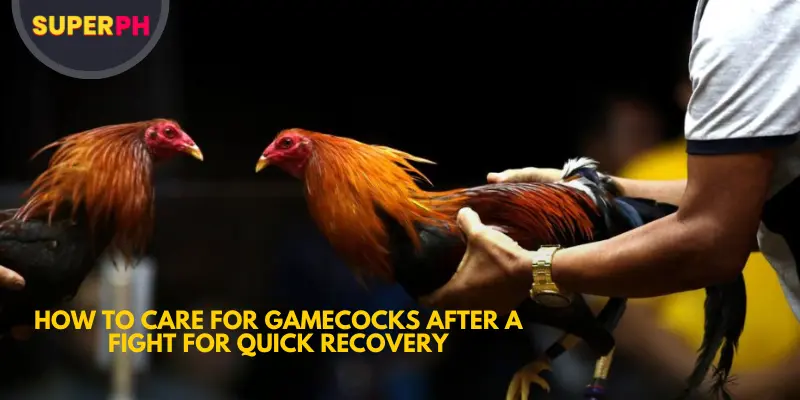Overview Care for Gamecocks After a Fight
How should you care for Gamecocks after a fight? Following a match, gamecocks expend a tremendous amount of energy. Without proper care, they can fall ill and experience delayed recovery. It’s common for gamecocks to return from fights with bruises or injuries, leaving them fatigued and, in severe cases, completely drained. It’s the responsibility of handlers to treat these injuries effectively and efficiently, helping the gamecocks recover their strength and prepare for future matches.
This article by SuperPH outlines the best practices for post-fight care to ensure the quickest recovery.
Why It’s Essential to Care for Gamecocks After a Fight
After a match, gamecocks are highly susceptible to weakened health due to injuries, making them prone to conditions such as cold exposure, indigestion, fatigue, and loss of appetite. Proper post-fight care ensures that they recover quickly and avoids the risk of complications or infections.
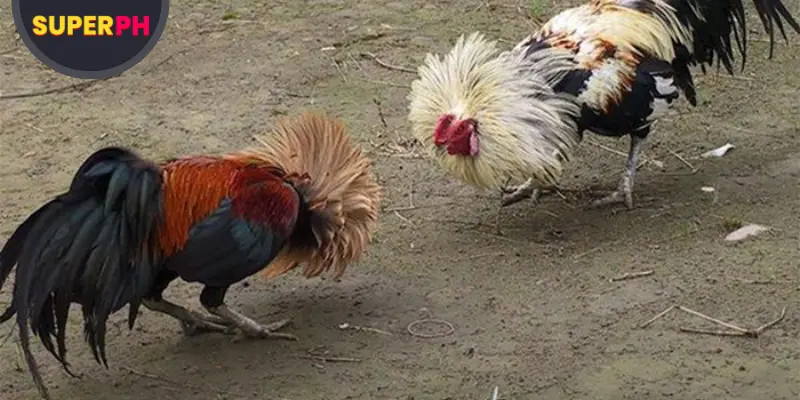
To help your gamecock recover swiftly, you should:
- Adjust their diet to include easily digestible foods.
- Temporarily pause intense training.
These measures not only provide the necessary nutrition for recovery but also prevent dangerous pathogens from attacking a weakened body.
Step-by-Step Care for Gamecocks After a Fight
Each step in the post-fight care for gamecocks process is crucial to ensuring your gamecock recovers as quickly and effectively as possible. Skipping any of these steps or rules may compromise the care process and recovery outcomes.
Treating Injuries Immediately After the Fight
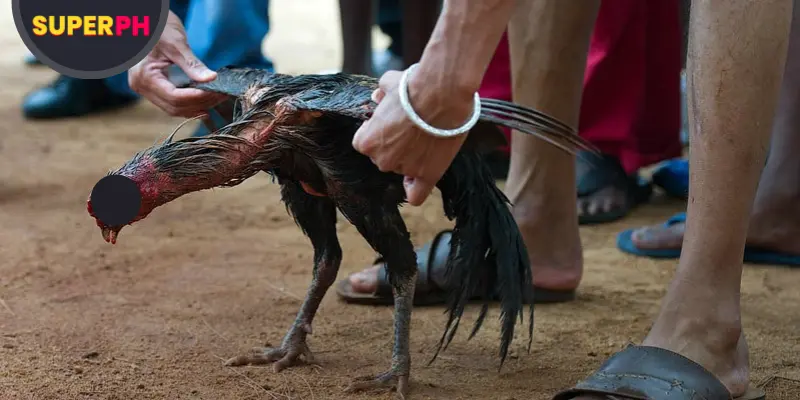
Returning from a fight, gamecocks often have dirt, dust, and visible injuries such as bruises or swelling. Some handlers avoid treating these wounds out of fear of causing pain, but neglect can exacerbate the injuries. Here’s what you need to do:
- Clean the Gamecock’s Body
Use warm water to gently clean off blood, dirt, and dust from the gamecock’s neck, head, and body. - Clear the Throat and Remove Debris
- Use a clean feather dipped in cold water and stroke it against the direction of the feathers.
- Open the gamecock’s mouth and carefully insert the feather deep into the throat to remove debris and mucus.
- Repeat this process until the throat is clear, then use a clean towel to dry the area.
- Apply Hot Rice and Massage with Alcohol
Feed the gamecock warm rice and massage its body with alcohol, focusing on bruised areas. Avoid applying alcohol directly to open wounds, as it may cause severe pain.
Second Health Check and Preparing the Rest Area
After a fight, gamecocks are often too weak to fend for themselves. To ensure they rest peacefully, relocate them to a clean, isolated space.
- Keep the Cage Windproof: Thoroughly clean the gamecock’s cage and make sure it’s free of drafts to avoid cold exposure.
- In winter, use heaters or heat lamps to keep the cage warm.
- In summer, provide a water bowl near the gamecock to ensure adequate hydration.
- Monitor Their Health on the Second Day: Regularly check for healing progress in their injuries and overall health. This helps identify potential complications early, allowing for timely intervention. Continue massaging with alcohol and using warm water to promote faster healing.
=> Read more: What to Feed Gamecocks Before a Fight to Peak Performance
Watch for Signs of Illness
After a fight, gamecocks are more vulnerable to ailments like colds, indigestion, and abnormal stools (e.g., white or green droppings). To prevent these health issues from worsening:
- Observe the gamecock’s behavior and condition closely.
- Act promptly at the first sign of illness to prevent the disease from spreading or becoming harder to treat.
By following these steps and paying close attention to your gamecock’s condition, you’ll help ensure their swift recovery and readiness for future competitions.
Pay Attention to the Diet of Gamecocks After a Fight
What Medicine and Food Should You Provide?
After a fight, what medicine should your gamecock take? What food will help them recover quickly? Instead of immediately feeding them grain or paddy, the best diet for gamecocks post-fight includes a mix of warm rice, bran, and Vitamin B1. If your gamecock is too weak to eat on its own, carefully hand-feed it.
In cases where injuries severely hinder the gamecock’s ability to eat, consider cooking porridge and feeding it directly via a syringe. Once all the above steps are completed, wait for about three days before starting water treatments, which will further enhance their recovery.
Important Notes During Gamecock Recovery
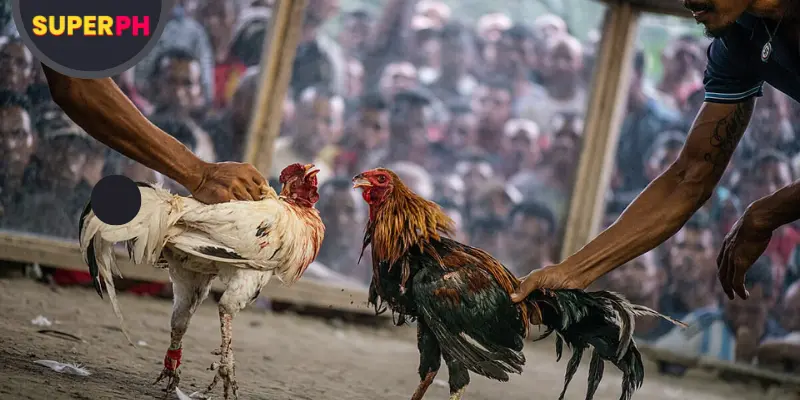
When caring for gamecocks post-fight, certain precautions are crucial to ensure their health and recovery:
- Avoid Bathing the Gamecock: After a fight, their immunity is weakened, and bathing could lead to colds or dangerous complications. Refrain from bathing them during recovery.
- Limit Stimulating Foods: Avoid spicy, oily, or hard-to-digest foods as they can interfere with the recovery process.
- Monitor Their Droppings: Keep an eye on the Gamecock’s droppings to detect any early signs of health issues, allowing for prompt intervention.
- Maintain Clean Living Conditions: Regularly clean the Gamecock’s living space, removing droppings and leftover food to prevent bacterial growth and disease. Disinfect the coop periodically with specialized solutions to reduce the risk of outbreaks.
=> Read more: Is Sabong allowed in the Philippines?
How to Apply Post-Fight Massages and Treatments
One of the most essential steps in caring for gamecocks after a fight is massaging and treating their injuries. Proper massage treatments reduce bruises, prevent fungal infections, and improve the condition of the gamecock’s skin, making it tougher and more attractive. Below is a guide to performing massages:
Ingredients for Massaging and Treating Injuries
The basic ingredients required for treating and massaging gamecocks include:
- Turmeric.
- White mugwort.
- Salt.
- Orange or tangerine peels.
- Dried tea leaves.
- Mugwort leaves.
Steps for Massaging Gamecocks
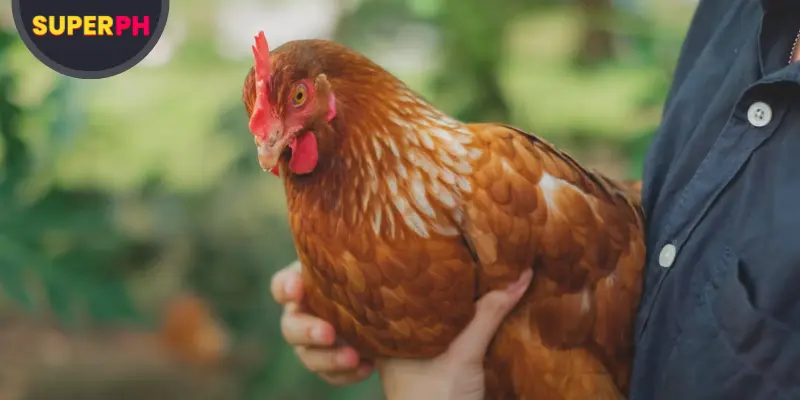
- Prepare the Treatment Solution:
Combine all the ingredients in a pot of water and bring it to a boil. Let the solution cool slightly before use. - Apply the Solution to the Gamecock:
- Prepare a clean, dry towel for the massage.
- Dip the towel into the solution, wring it out thoroughly, and begin massaging the gamecock from head to toe.
- Focus on areas prone to dirt and sweat buildup, such as the thighs, hips, underwings, and crest.
- Ensure the towel is not too hot and avoid prolonged contact to prevent burns or discomfort.
- Steer clear of sensitive areas like the knees and eyes to avoid additional stress or injury.
- Repeat the Process:
Continue massaging the gamecock until its wounds begin to heal. Gradually increase the amount of turmeric in the solution to enhance skin coloration and toughness. Alternatively, you can spray white alcohol on the gamecock to disinfect external wounds, prevent fungal infections, and enhance its fighting spirit.
=> Read more: 15 Facts About Sabong You Didn’t Know
Combine Massages With Training
Consistently massage and care for gamecocks over a week to restore its health. Once the gamecock shows signs of improvement, introduce light endurance training, such as cage running. Gradually progress to more intense drills like controlled sparring to help the gamecock regain its peak form for future matches.
Important Reminders for Post-Match Care
While the steps for post-match care are straightforward, they require gentleness and adherence to specific rules. The rooster’s body is highly sensitive after a match, so even minor mistakes could lead to permanent damage. Avoid rushing through the process to ensure your rooster remains in peak condition for future matches rather than becoming unfit for competition.
=> Are you looking for a reputable and top-quality casino for betting? Try our partners: Phjoy.
Conclusion
After a match, providing proper care for gamecocks is critical to ensuring their health and quick recovery. By applying the knowledge shared by SuperPH, you can effectively nurture your gamecocks back to full strength, avoiding complications and preparing them for their next competition. This approach not only ensures their readiness for the arena but also promotes long-term health and vitality.


